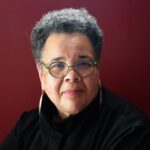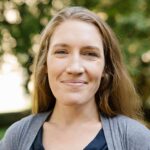Hebrew Bible
Syllabi - Topic: Hebrew Bible - 44 results
Select an item by clicking its checkboxA 2016 course by J. Edward Wright at Arizona University surveys "Jewish history and religion during the Second Temple Period."
A course by Mary Suydam at Kenyon College that explores the history and interpretations of the Hebrew Bible.
A 2013 course by John Kessler at Tyndale Seminary surveys the history and theology of the Hebrew Bible.
A fall 2007 course by Rhonda Burnette-Bletsch studies "the diverse writings of the OT or Tanakh as literary products of their original social and historical contexts" with attention to how "later communities appropriated these texts for new situations."
A 2013 course taught by Sandra Jacobs at King's College, London "explores the characterization and role of women in the Hebrew Bible . . . With a view to understanding the patriarchal context in which these traditions evolved."
A 2013 course by Robert Kawashima at the University of Florida on apocalypticism which entails "a new literary form . . . And . . . a new way of viewing reality."
A 2017 course by Rev. Leonard Obloy at SS. Cyril & Methodius Seminary surveys the Wisdom Literature and Psalms.
A 2013 course by Paul Smith at Golden Gate Baptist Theological Seminary "focusing on the exegetical handling of scripture and its relationship to homiletic development."
A 2014 course taught by Taylor Halverson at Indiana University examines the Abraham stories of the Hebrew Bible and the "emergence of Judaism and its use of Abraham to create religious identity" and how Christianity and Islam also look to Abraham as a "guiding figure in religious development."
A 2013 course by Rebecca Idestrom at Tyndale Seminary that explores the "Bible's portrayal of women . . . (through) key Old Testament passages against the background of ancient Israelite society" with discussion of contemporary issues as well.
A 2013 course by Tyler Mayfield at Louisville Presbyterian Theological Seminary "provides an in-depth examination of the prophetic book of Isaiah through translation and exegetical exercises in the original Hebrew text.
A 2014 course by Chuck Pitts at Houston Graduate School of Theology studies the book of Isaiah with attention "to the content, form, and style, and to the historical and literary contexts as well as to exegetical methods, interpretation, and application."
A 2017 course by Lisa Davison at Phillips Theological Seminary is "designed as a survey of the Hebrew Bible from the perspective of the female characters in the stories."
A 2010 course by Lisa Davison at Phillips Theological Seminary is an "exegetical course" in "the texts of the 8th century prophets of the Hebrew Bible . . . And the concept of 'justice' at work in these biblical voices."
A 2016 course by Lisa Davison at Phillips Theological Seminary introduces "exegesis and the variety of methods utilized in interpreting a biblical text."
A 2017 course by Lisa Davison at Phillips Theological Seminary is an introduction to "exegesis and the variety of methods utilized in interpreting a biblical text."
A 2014 course by Victor Matthews at Missouri State University offers " a close reading of the portions of the Hebrew Bible which include the major and minor prophets. Methods will be demonstrated for study and analysis of these materials, including the use of sociological, anthropological, historical, and literary criticism."
A 2000 course by Victor Matthews at Southwest Minnesota State University is "a close reading of the portion of the Hebrew Bible which includes the major and minor prophets. Methods will be demonstrated for study and analysis of these materials, including the use of sociological, anthropological, historical, and literary criticism. In particular, the emphasis will be on cross-cultural and comparative study of prophecy in the ancient Near East and in other world cultures."
A 2013 course by Robert Kawashima at the University of Florida
A 2013 course by Johanna Bos at Louisville Presbyterian Theological Seminary teaches the skills required to "translating and reviewing a Hebrew passage applying text and historical criticism, leading to a meaningful interpretation of the text."
A Fall 2007 course taught by Jonathan D. Lawrence at Canisius College
A 2011 course by Joseph Jensen at Catholic University of America "is an introduction to the books and theologies of the Old Testament. It will cover the Pentateuch, deuteronomic history, the Prophets, and Wisdom literature." The course makes special note of Vatican II's Decree on Revelation.
A course taught by Victor Matthews at Missouri State University "is an introduction or survey of the literature and social world of the Old Testament/Hebrew Bible . . . Attention will also be given to the history and religion of Israel as well as the other peoples of the ancient Near East."
A 2011 course by Barbara Green, O.P. at the Dominican School of Philosophy and Theology "provides a basic overview of biblical material, starting 'at the beginning' and concluding with the expulsion of Jews from the Jerusalem area in the year 135 C.E."
A 2017 course by Kon Hwon Yang at Gateway Seminary provides a "general introduction to the content, background, interpretation, and critical studies of the Old Testament."
A 2017 course by Tony M. Cleaver at Baptist Missionary Association Theological Seminary "is a general survey of the entire New Testament, including history, geography, and literature."
A 2012 course by Tyler Mayfield at Louisville Presbyterian Theological Seminary "introduces the student to the historical, literary, and theological worlds of the Old Testament/Hebrew Bible as a basis for biblical and other theological studies in the seminaryâs curriculum."
A 2013 course by Sam Thomas at California Lutheran University "will investigate the literary, historical and theological contours of the Old Testament or Hebrew Bible."
A course by Gordon Hugenberger at Gordon Conwell Theological Seminary is an introduction "to the theology of the Pentateuch . . . While attention will be given to the historical context, literary structure, and contents of each book, the emphasis of this course is biblical theology."
A 2014 course by John Reeves at the University of North Carolina Charlotte "provides an overview of the diverse genres of literature contained within the Hebrew Bible as well as an introduction to its modern critical study."
A 2010 course by Joel Kaminsky at Smith College focuses on "the content of the Hebrew Bible and the historical and cultural context in which it flourished will be the primary goal."
A 2008 course by Joseph Edelheit at St. Cloud State University "is an exposure to interdisciplinary tools of understanding Scripture, especially as the primary text of the Jewish people and Judaism."
A 2000 course by Victor Matthews at Southwest Minnesota State University is "an introduction or survey of the literature of the Old Testament/Hebrew Bible. As a way of further illuminating these materials, attention will also be given to the history and religion of Israel as well as the other peoples of the ancient Near East."
A 2008 course by Michael Zank at Boston University explores the figure of Moses in the Hebrew Bible and various historical periods.
A 2010 course by Kenneth Atkinson at the University of Northern Iowa introduces "the history and ideas of the Old Testament and other contemporary texts, as well as the tools that biblical scholars use to understand them."
A 2012 course by Joel Kaminsky at Smith College moves chronologically through the prophets of ancient Israel asking "What are the different types of prophets that are found within the Hebrew Bible? What role did the prophets play within their larger society? Did different prophets deliver different, or even conflicting prophecies? Can one tell a true prophet from a false prophet? What sort of person became a prophet? What psychological dispositions do prophets exhibit? If prophecy is not simply fortune telling, what is it? "
A 2004 course by Annette Reed at McMaster University studies the first five books of the Bible by tracing "the processes by which these texts came to be formed and consider the multiple socio-historical contexts that informed them, while also analyzing their narrative structures and meaning in their present form."
A 1998 course by Peter Haas at Vanderbilt University introduces the Bible, its study, and meanings.
A 2002 course by Jim Watts at Syracuse University investigates "critical issues in the modern study of the Torah/Pentateuch, including its composition, literary form, canonization, and interpretation in modern biblical criticism."
A 2014 course by Cheryl Anderson at Garrett-Evangelical Theological Seminary provides an introduction to the history and methods of modern biblical scholarship with special focus on "the theological and ethical implications of the book of Judges."
A 2009 course by Barbara Green at Garrett-Evangelical Theological Seminary "offers a survey of the former prophets (as the books of Samuel and Kings are called in the Jewish tradition) and of the latter or writing prophets (major and minor) who are presented as having lived before the exile to Babylon (587 B.C.E.)."
A 2015 course by Gerardo Rodríguez at Carroll College "surveys the historical, literary, cultural and theological heritage in ancient Israel from its earliest beginnings to the start of the Christian era. Attention will be paid to the geographical and historical contexts in which the Jewish scriptures arose, their social setting, political contexts and theological message."
A 2014 course by Cheryl Anderson at Garrett-Evangelical Theological Seminary explores "the book of Exodus, its canonical and historical setting, its laws, and theological themes" as well as contemporary interpretations and artistic depictions.
A 2014 course by Cheryl Anderson at Garrett-Evangelical Theological Seminary surveys the canonical, historical, and theological dimensions of the Book of Amos.

